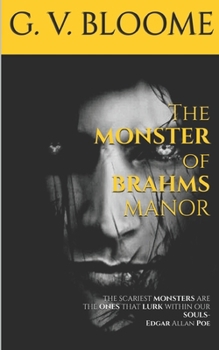The MONSTER of BRAHMS Manor
Sometimes monsters are not just monsters - they are reflections of ourselves, mirrors of our own darkness and light. But do monsters only exist as a figment of our imagination, or are they real? In this late 19th-century crime fiction horror novel, Henry Blackshaw, the owner of a derelict manor, hires private detective Stephen Moore to investigate a series of strange disappearances on his property. As the detective and his team ponder who may be responsible for the missing victims, confronted with chilling evidence that makes their blood run cold, they come to a terrifying conclusion.Brahms Manor stood ominously behind the thick woods in a small English village of Shere; its dark silhouette blending seamlessly with the shadows of the night. The howling wind made anyone, who would be brave enough to come close to the uncanny place freeze in silent terror... 'The scariest monsters are the ones that lurk within our souls'- Edgar Allan Poe
Format:Paperback
Language:English
ISBN:B0D3JG5NPH
ISBN13:9798324311759
Release Date:May 2024
Publisher:Independently Published
Length:232 Pages
Weight:0.51 lbs.
Dimensions:0.5" x 5.0" x 8.0"
Customer Reviews
0 customer rating | 0 review
There are currently no reviews. Be the first to review this work.





















